A woman stands in the center of the village of Iwarame.
Seemingly ageless as the land itself, she is thin but strong, her dark skin wrinkled by a life spent in the Papua New Guinea forest. A crowd gathers around her as the entire village watches the drama unfold.
A young man emerges, holding a scrap of paper with large block letters scrawled across the front: AUSTRALIA. He circles her, inspecting her carefully before unlacing her headdress of bird-of-paradise plumes and sauntering back into the crowd.
One by one they come — AMERICA. JAPAN. GERMANY. CHINA. — stripping the crown of teeth, shell necklace, and grass costume from her body until she stands nearly naked on the hard-packed dirt of the village center. Leaning heavily on her staff, she falls to her knees.
The metaphor is unmistakable. And painfully uncomfortable.
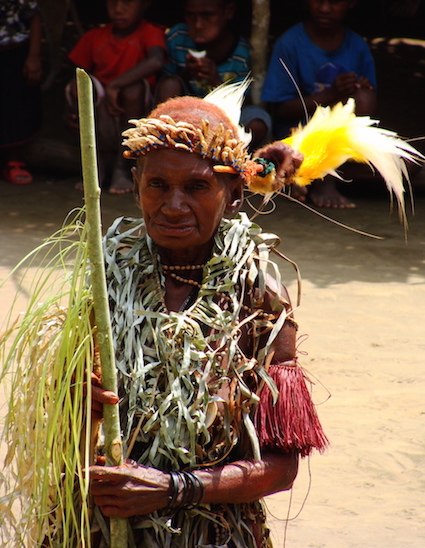
Sights and Sounds of the Sing-sing
Half an hour earlier, my companions and I were welcomed into a remote village in Papua New Guinea’s Adelbert Mountains by a traditional sing-sing. It was the third sing-sing held in our honor over the last eight days; first in Musiamunat, then Yavera, and now Iwarame.
Each sing-sing is a sensory overload: immersive, overwhelming, and beautiful.
Drummers pound out a rhythm for the dancers. Women and men move in unison, their costumes flashing in the sun. Bird-of-paradise headdresses beat in time to the music — as if the birds were still alive and flashing their multicolored plumes in the forest canopy.
Ochre-rubbed bodies glisten in the sun, grass skirts sway, shell rattles jangle, and dozens of shuffling feet kick up dust from the hard-packed earth. With each step the combined reverberations echo through the earth, into my chest.
Everything is utterly foreign, yet achingly familiar.
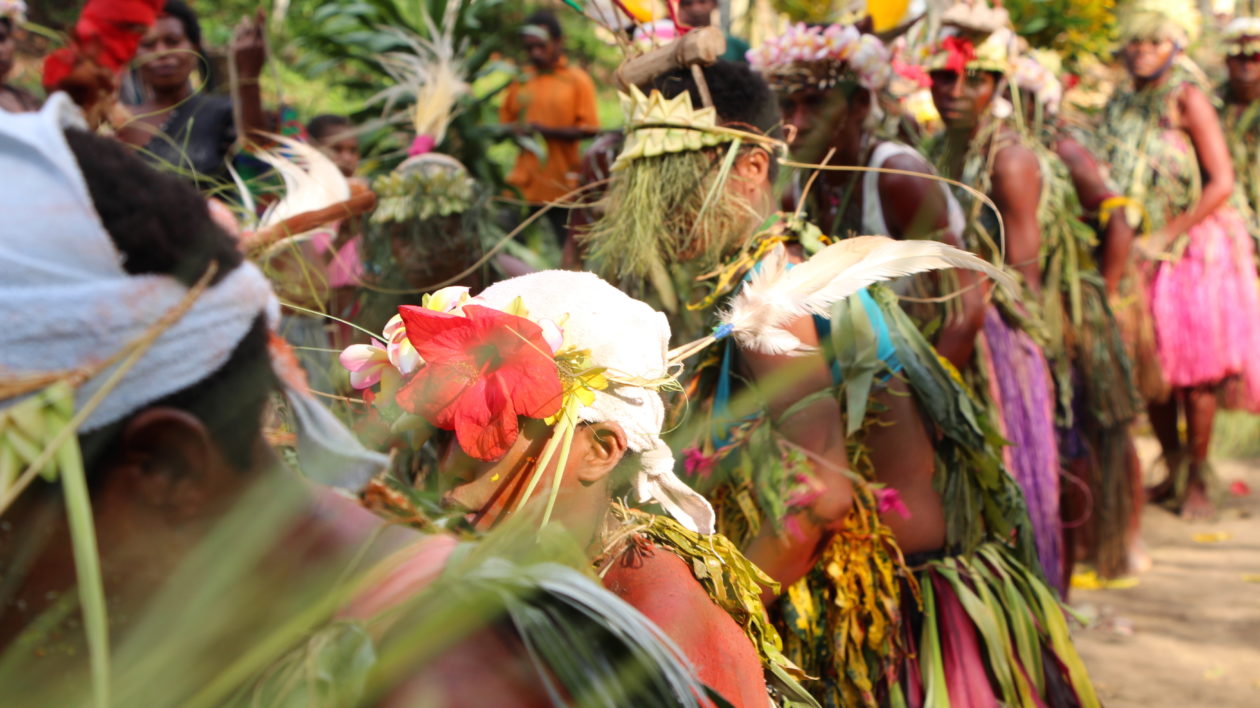
The air is saturated with the distinctly mammalian smell of humans mixed with smoke, the forest, and the sweet floral scent from the necklace of white flowers a village woman places around my neck. The petals are soft, edged with pink and yellow.
Villagers gather to watch our procession, children wide-eyed in their mother’s arms. Pigs, dogs, and chickens skitter out of the way.
Each time they lead us through the village, sometimes as a group and sometimes by hand, in a slow-moving parade to what became our hut for the next several days.
At Musiamunat, our first sing-sing, all of this occurred after a grueling nine-hour hike that left us utterly spent. A young woman led me into the village, and I struggled to hold my camera upright and steady with my one free and rather sweaty hand. (Eventually I was reduced to adjusting the focus point with my nose.)
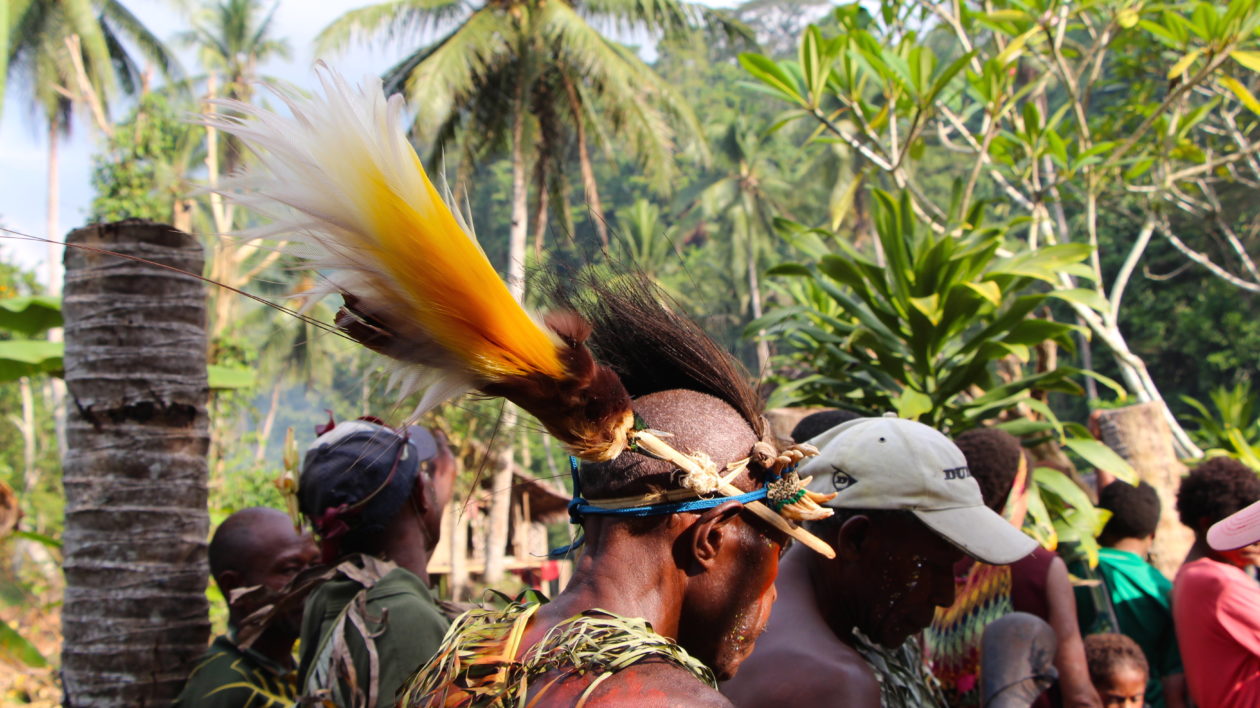
A Lesson in Tok Ples
Wedged between Nature Conservancy scientists Eddie Game and Timothy Boucher, I watch the next scene in the Iwarame drama unfold. The local policeman paces back and forth in front of the villagers, wearing a blue button-down shirt and a baseball cap accented by a red hibiscus flower over each ear. One of the village leaders stands behind our group, supplementing Eddie’s attempts to translate the animated, sermon-like speech.
The message is simple enough: Before the Conservancy worked here, they would go to different places and see their forests degraded. But things are improving now that they have land-use plans and rangers to monitor how they use their forest.
The only word I could make out from the rapid string of Tok Ples — and the only English word uttered — was conservation.
As the drama ended, we stood up to applaud and shake quite literally every hand in the village. The line stretched through the village center — more ageless elders, strong-armed men in their prime, young women who held out their babies’ hands for us to grasp. The line ended with a gaggle of young children… the tentative ones shoved towards us by their parents, others approaching on their own with bashful boldness.
And with each and every handshake we said tenkyu tru. Thank you.
It seemed a fitting refrain to the only word from my own language that I understood all day. We call ourselves conservationists, but on this day and in this place it became starkly clear to me that we were just visitors. They are the conservationists, by choice as much as by necessity.
Conservation. Tenkyu tru.
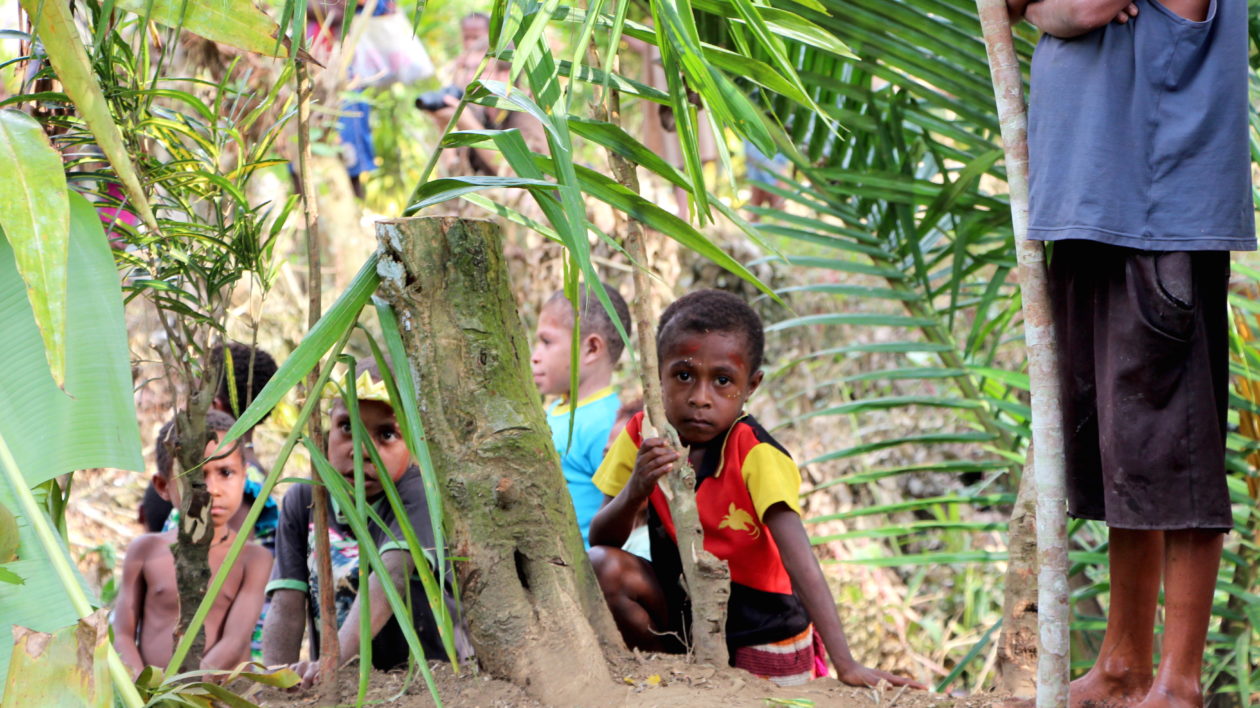
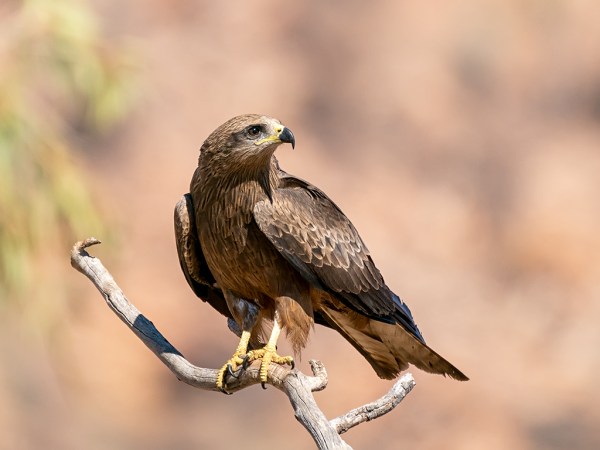
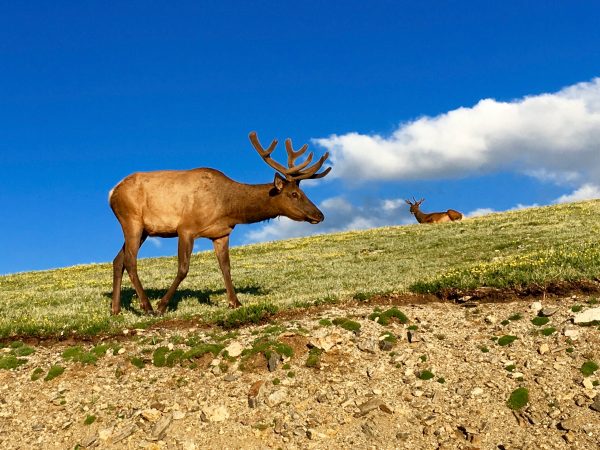
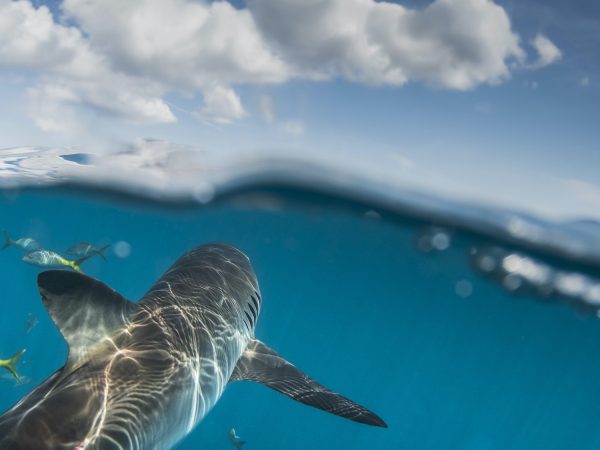
Good on you Justine. You are a brave women for PNG conditions. What about visiting my savannah woodlands and grasslands in the Wipiland, South Fly District of Western Province, better still the large Oriomo Plateau that stretches from the eastern coast of Daru to Merauke in West Papua. There are many kinds of snakes there, and among them some of the most venomous snakes in the world.